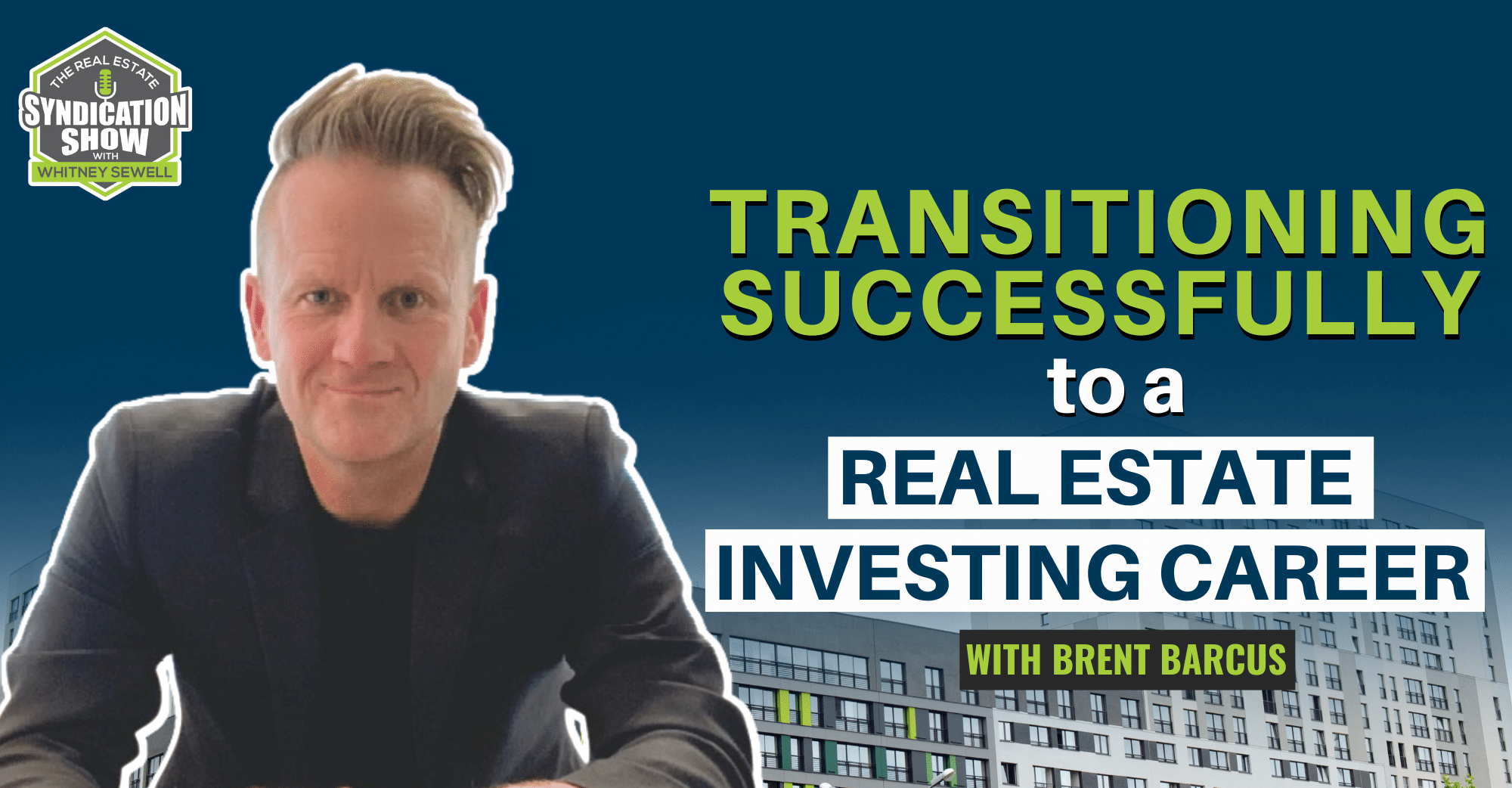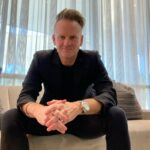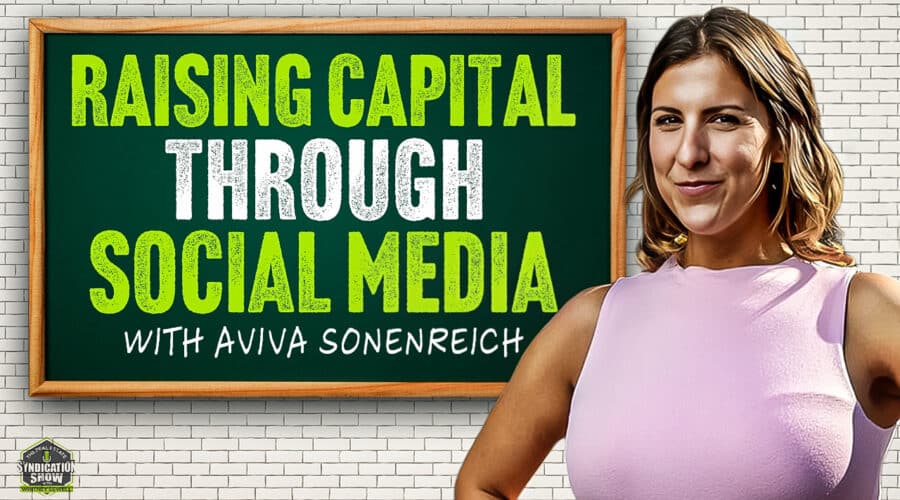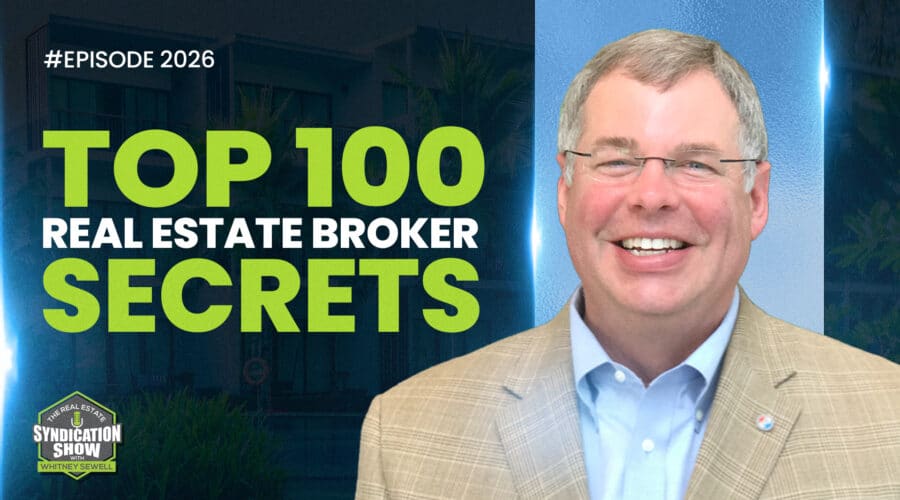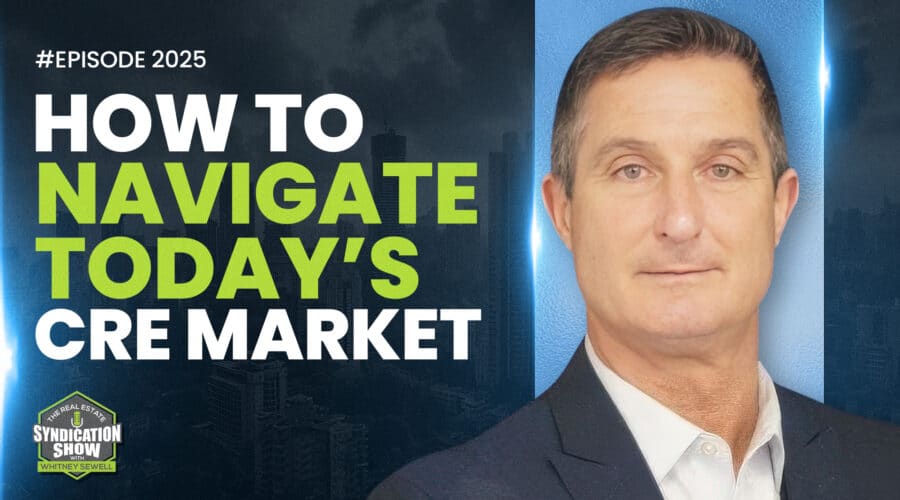If you’re considering transitioning to a career in real estate, you’re entering a field with unlimited potential. Whether you’re a seasoned sales professional looking for a new challenge or someone who’s always had an interest in real estate, it’s a career that can be both financially rewarding and personally fulfilling. But what will the transition look like?
Watch the episode here:
Listen to the podcast here:
Join Brent Barcus as he shares how he balances and enjoys both worlds – audio post mixing, sound design and audio production together with real estate investing. This is one episode that will inspire even those who don’t possess any property market background.
Key Points From This Episode:
- Since he was into music, why did he transition to real estate?
- How did he educate himself and what were some of the steps he’s taken?
- What steps did he take to make a successful transition?
- What lessons did he learn along the way?
- How does he reach out to find more investors and network with them?
- What was the most challenging part of his first deal?
- What’s the most recent way that he’s recently improved his business?
- What is his best source for meeting new investors?
- What are some of the most important metrics that he tracks?
- What’s the one thing that has contributed to his success?
Tweet This!
“What worked for me was looking for different ways to have long-term investments.”
“I started listening to podcasts several years ago, and just kind of fell in love with the multifamily space and those that were teaching and so it just was something that I really want to get into.”
“I knew then I still have a lot to learn. But that was a way that I knew I could scale the education side was just to get around those that are excellent at what they do and great at their craft.”
“As I grow in these assets, and bring assets to passive investors, I think, within building that track record, it’s going more to high-net worth investors in my space of sports, and entertainment.”
“It takes time, obviously, because those relations – they feel safe with me from a creative standpoint, and we’ve worked together with clients.”
“I didn’t know you could pull money out of an IRA and self direct. So that was eye- opening, which I love.”
“I’m doing a lot of meetups and local local meetups, I’m even going to events that really aren’t real estate-focused. They might be wealth events or other things in the sports and entertainment industry.”
“It’s kind of really just a grassroots thing locally right now, and then someone on social media as well.”
“I’d love to get involved; let me know how I can be of value if you need anything or if I could be boots on the ground here in Nashville.”
“So just kind of getting all the foundation of my systems in place to kind of do some automation with a newsletter and building my list of leads. So just starting there – grassroots.”
“I still think it’s, for me, it’s events, local events, local and being in the same room and just starting those conversations and dialoguing, especially on the co-GP side.”
“I’m just trying to build my network and build relationships. It’s to be at one live event every month. So one large live event every month I’m going to is so nice.”
Links Mentioned in Today’s Episode:
About Brent Barcus
Brent Barcus is a Partner in multifamily acquisitions and apartment syndications at i65Capital Investments. He helps clients in sports and entertainment achieve in a different arena and capitalize on opportunities to preserve, grow, and transfer their wealth into real estate. He is a Co-General Partner of 196 units in Georgia.
Mike earned a degree from Belmont University.
Full Transcript
EPISODE 1627
[INTRODUCTION]
Brent Barcus (BB): I think it was looking for different ways to have long term investments. I started listening to podcasts several years ago and just kind of fell in love with the multifamily space and those that were teaching and so it just was something that I think man, do I really want to get into this and I, you know, like I’ve done in the past with anything else music and audio just dove straight and just wanted to learn everything I could through podcasts and education. So that’s kind of brought me to this point of just pursuing it with everything I’ve got.
[INTERVIEW]
Whitney Sewell (WS): This is your Daily Real Estate Syndication Show. I’m your host, Whitney Sewell. Our guest today comes from an industry I don’t think we’ve had on the show before this coming to real estate now. But from rock guitar to real estate, Brent Marcus is our guest today and in his creativity, work ethic, keynote for opportunity, are the winning ingredients that continue to bring him great success.
When he relocated to Nashville right out of high school. His determination quickly found him sharing the stage with many global artists such as Elton John, and Kenny Loggins. I told him I wasn’t familiar with Kenny Loggins, but I’m gonna look you up because he used to play for him and sing with him as well. Well, Brent now is in the syndication space, he’s doing deals, and he’s making things happen. So we’ll share some of those tips and things such as how he’s done that, how he’s doing that, and a path forward, how he’s growing and lessons learned, as well, a lot around like the first capital race.
So you’re gonna learn a lot. And probably you probably have questions if you’re trying to do that yourself, hey, how do I do that? Or I’ve got some fear. Listen to this show, from rock guitar to real estate. I don’t know if I’ve ever got to say that before on the show, by the way, but that’s pretty cool. I love hearing that I bring it. Welcome to the show.
BB: Hey, thank you so much. It’s an honor and a pleasure to be on. Thank you.
WS: Yeah, great to have you. Great to meet you and to share with the listeners today, some tips that you know from you as well. And so let’s jump right in Brent, from rock guitar to real estate that probably picked some people’s interest, right. I love guitar music. I love music as well. I’m a drummer, though, so don’t hold it against me. Right?
BB: There’s some drummer jokes I have, but I’ll leave them.
WS: Well, Brent, let’s hear a little bit about why like why real estate? Obviously, you’re big into music, audio, why the transition to real estate? And let’s talk about that path a little bit.
BB: Yeah, thank you so much. Well, let’s see. I’ve been in music all my life, you know, as a kid growing up in the 80s. And in the Midwest, St. Louis, Missouri, and my dad, I’m a second generation real estate investor, my dad was a broker and a developer investor in St. Louis, in the Midwest. And so it was kind of like real estate was always just kind of in my blood from just watching him growing up. So I always respected that. But music was just something that I gravitated to in middle school, guitar caught my brother who’s six years older, he’s a drummer.
So we have that in common with drummers. And so my parents were amazing. They let you know, my brother had a full drum set in his bedroom and just, you know, played as much as he wanted. So it was a very loud house. So it was a lot of creativity. And he was in a high school band, so I gravitated to guitar. And so I’d sit on the edge of my bed and play. My mom would be faithful to take me to private lessons.
And I did that all through high school. And then for some crazy reason, I thought I’m gonna give music a shot as a career and moved to Nashville straight out of high school to study music here in Nashville. So that’s kind of how I got to Nashville at 19. And just found myself in a dorm full of great musicians. I was at that point, you know, you’re in a bigger, bigger pond and felt a little overwhelmed. So I had to step up my game and practice and network and meet people and meet other players.
And it just kind of snowballed from there from school and got into playing. I want to be a session player. I studied all the great session players in the 80s. And so kind of figured out how to perform and you know, wanting to work for different artists. So that’s kind of where I ended up in Nashville and auditioning and getting jobs here and it snowballed.
WS: Wow, that’s incredible. So why real estate? Now, I know you talked about your dad, you know, being a broker. And that’s a great background to have, you know, yeah. What about you know, why real estate now? Or what is it about?
BB: Yeah, so it’s been a theme throughout this whole, you know, my music career on audio, you know, I’ve always been my wife and I, my wife, my wife. So realtor, actually, and we just always loved for a while it was single family, we would do, you know, whether I was on the road, or we lived in LA for a while, we would always buy single family, fix him up, you know, flip them or live in them for a while, two years, and then sell them and move on. And we did some short, we’ve done some short term.
So it’s always been a creative outlet for us. We’ve loved that, you know, fixing things up and proving the value and moving on and doing other things, but it wasn’t till so it’s always been in my life. But I think, you know, as I got older now, I have kids, I think it was looking for different ways to have long term investments, started listening to podcasts several years ago, and just kind of fell in love with the multifamily space and those that were teaching and so it just was something that I think, man, I really want to get into this and I you know, like I’ve done in the past with anything else music and audio just dove straight and just wanted to learn everything I could through podcasts and education. So that’s kind of brought me to this point of just pursuing it with everything I’ve got.
WS: Yeah, that’s awesome. Well, you know, you are now, you know, jumping into syndication and you know, larger assets are really quickly, you know, speak to the transition to being able to do that to partner on some large deals or jump into some large deals from real, a totally different career, right. And at the same time, even, but speak to that transition in how you educated yourself and some of the steps taken.
BB: I think a lot of it, there’s so much collaboration that goes on in the creative space as well, you know, recording music, writing music, producing music, mixing all this, there’s such collaboration. So it’s kind of a natural thing for me in the studio. So you know, that’s a comfortable space for me.
So I’ve just figured, hey, to scale, the learning side of this would obviously be a podcast, that’s a solo thing more but would be to go into as many events as I could. It’s kind of where I started because I wanted to meet GPS, LPs, and excellent sponsors. I figured how I was going to do that was just to take my extra time, not in the studio, and to go to events, just start networking and meeting people I knew. I still do have a lot to learn.
But that was a way that I knew I could scale the education side was just to get around those that are excellent at what they do great at their craft and start to learn from them. And hopefully, then find ways to provide value to them and bring whether it’s bringing capital or other value add things that I can bring to deals to help, you know, to GP more. So that’s kind of my goal.
WS: Yeah, that’s all I was thinking about when you were talking about the music part of it way back, right. You know, you’re talking about, yeah, all of a sudden, you surrounded yourself with all these people, that is a bigger pond, right? And they were really good. And you said, Hey, I had to step up my game. I saw that that’s why we have to continue to do that. Right?
We have to continue to find those rooms, or groups of people who are where we want to be but the next level up, right, and we finally kind of get there. And then we got to find that next one. Right? Yeah. And keep finding that, you know, it sounds like you did that in music. And obviously, now you’re applying that to the real estate business as well.
Talking about going out for your, say, your first capital race, and how you helped that to be successful, maybe some steps taken or, you know, did you go to friends and family? Was it? You know, did you already have a network of high net worth individuals that were like, ready to invest with you? What did that look like?
BB: Yeah, really, really interesting, because I’d never obviously done a capital raise before. So at first it was like, Okay, how am I gonna approach this? I found a deal that I could get into that I loved. I did the underwriting. And obviously, there were already some lead sponsors that were inviting me in, which was great, but I knew that okay, how am I going to get from this and share this with other people I think, would be great, a great opportunity for others.
So it was a friends and family thing at this point, just because that’s the network of people that I have built the relationship with strictly from the trust worth on the financial side of bringing somebody into a real estate deal, when I don’t have that background as much to them on the multifamily side. So, but the trust was there, you know, to share this, this asset and invite them in and see if they were interested. So, so far, that has been the case. But you know, I feel like, and we all have these backgrounds and other careers, we’ve come from other spaces.
That’s been my kind of my goal now is to as I expand that network, I can hopefully, you know, as I grow in these assets, and bringing assets to passive investors, I think, and then building a track record, it’s going more to high, high net worth investors in my space of sports, and entertainment is kind of where my relationships are mostly so. So that’s kind of the way I think, for me to scale on that side. But at this point, it’s been mainly friends and family.
WS: Yeah. Now, it’s good, though, when you have a kind of a niche, right. I don’t know of too many people who are in music, right, that are in our business as well. Right. Many come from all kinds of similar paths, you know, but you’re kind of in a niche almost in your own blue ocean there of people. Right, you know, in that industry? I don’t know, probably not very exposed.
BB: Now. Yeah. And I think what’s its takes time, obviously, because those relations have been, you know, they feel safe with me, from the creative standpoint, we’ve worked together with clients, but now just that comfort level of, hey, I really believe in this asset class, I know that this can benefit so many others in this space.
So now, you know, approaching those people with that confidence that we have with each other creatively now just like how do we open those doors for you know, these asset classes so they can bring capital into the deals as well? So that’s the long game I guess, you know,
WS: Yeah, for sure. Speak to some of the lessons learned on the first two, gosh, let’s see lessons learned. Or maybe through maybe there were investor questions that that you had to go figure something out and learn from or research.
BB: A lot of that. You know, a lot of things like well, I’ve got money tied up in an IRA or and just learning about the self-directed process. You know, that was a hurdle. I didn’t know anything about that. I didn’t know you could pull money out of an IRA and self-direct. So that was eye-opening, which I love. So it’s amazing.
There’s always more education, like we talked about, I feel like I’m growing so much in these different areas of answering these questions, even just down under the webinar on how to approach that, and opening up these assets and kind of running a webinar, that was a whole new thing for me to, you know, not running. I mean, there were other GPS, but still just being a part of that process and inviting friends and family into this webinar. Like, wait, you’re doing well, your real estate, what’s this?
You know, so yeah, that’s been interesting, too. And just in that confidence of, hey, again, the team site, I’m, I’m bringing this, I’m hoping this is I’m trying to include others into this, you know, this is something I’m learning, it’s a process. Maybe I’m a few steps farther along, but you know, it’s we’re all learning and it’s an opportunity to, you know, find out about these deals.
WS: So, was there a big shock factor? You know, as far as, like you just said, and I talked, people asked me about this all the time, but like layman brand, you know, you’re in real estate now, you know, type of thing from your family, friends, you know, how did you navigate that a little bit?
BB: You know, it’s more, I think it’s been slowly like, you know, it’s more of a social, you know, whether we’re at a hockey game or a social social event, you know, just starting to share about, hey, this is what I’m learning, you know, it’s like slowly feeding information. It’s not like setting an appointment and gushing all this out at one time, you know, and overwhelming somebody, it’s more like, hey, you know, I was or, Hey, I noticed you were in Dallas over the weekend for an event, you know, what are you doing?
Why are you at a real estate conference, and then slowly with social media as well, you know, all my group, obviously, most of the stuff I’ve posted in the years has been projects I’m working on with network or record label or something, but slowly, kind of adding real estate into those social my social media, you know, and slowly kind of sharing other other skills and other things that I enjoy doing.
WS: Yeah, speak to now about your process of reaching out to find more investors and networking them. What is networking with them and adding value to them? What does that look like?
BB: I’m doing a lot of meetups and local local meetups, I’m even going to events that really aren’t real estate-focused. They might be, you know, a wealth of events or other things in the sports and entertainment industry. I’m just sharing what I’m doing. So it’s kind of really just a grassroots thing locally right now, and then some on social media as well. But a lot of us just show up and do events, other things that are outside of the real estate space.
WS: Yeah, yeah. No, it’s a process. That’s a learning process, to say the least. But on that note, you know, how did you find a mentor? Did you find a mentor? Like, what did that process look like as well for you?
BB: Yeah, absolutely. I think I believe in it for sure. I have not really locked into one. I tend to find that if I do at this point. It’s been a lot of it’s been events and going I feel like I’m getting so much from you know, people like you obviously other other mentors that are doing podcast and obviously doing on site events, and just going in and getting almost like grabbing the best of you know, what kind of seems to fit or what I’m looking for from all these different mentors. So I haven’t really locked in on one but I just love getting all this information from those who have gone before me, you know?
WS: Yeah, for sure. What about what was the most challenging part of the first deal?
BB: Oh, gosh, I think just earning trust and providing you know, some sort of value, and I think the relationship building of just you got to show up like these events, different things get to know people and then follow up with with people Hey, I’d love to get involved, let me know how I can be a value you know, if you need anything or if I could be boots on the ground here in Nashville.
A lot of people obviously deal flow is pretty strong in Nashville. You know, if you need anything in Nashville, I’d love to help out. So a lot of issues constantly like reaching out to people I’ve met at these events saying, Hey, I’m here. I’m in Nashville, love to partner with you on deals, just let me know how I can help you know.
WS: What about a way that you’ve recently improved your business, that we can apply to ours as well, it could be a system software or our way to do anything?
BB: Doing portal, just getting my portal up to speed. I think that’s been huge. So I think having systems in place, a CRM. I’m using Pipedrive and Active Campaign getting ready to start a newsletter. So just kind of getting all those kinds of bases, the foundation of my systems in place to kind of do some, maybe start doing some automation with a newsletter and building my list of leads, you know, so just starting their grassroots.
WS: Yeah, awesome. What do you see as your best source for meeting new investors?
BB: I still think it’s, for me, it’s events, local events, local, and, you know, being in the same room, and just starting those conversations and dialogue, especially on the code GP side, getting to find out what people are doing, what markets they’re in, where they want to be, and just trying to build those relationships to partner.
WS: What are the most important metrics that you track could be personally or professionally or maybe one or both?
BB: Oh, gosh, metrics, I would say, Well, I obviously have goals. You know, I’ve tried to make aggressive goals this year. One of my goals is to be in two to three more deals as a co-GP. Gosh, I have so many life goals. I’m not sure what else that’s on the real estate side. And I think another goal right now is just trying to build my network and build relationships, it’s to be at one live event every month. So one large live event every month.
I’m going to be so nice. Just came from Dallas and am going back to Dallas in April for an underwriting event just to keep my son feeling sharp on underwriting? Mark and Camille think multifamily to do an underwriting event which is wonderful.
WS: Is that the one that’s called fire or something fire?
BB: There’s Fire Summit in the fall. I went to that, but this one is the deal analysis workshop.
WS: Okay, deal analysis workshop? I’ve met Mark a long time. And actually we’ve been, they’ve been advertising on our show for I don’t know, for a few months now the past month or two. So I highly encourage going to those events. They’re great. I’ve known Mark and I for a long time. But what about some habits that you’re disciplined about that have produced the highest return for you?
BB: I think showing up every day, you know, like I said, right now, I’ve got my studio, I do my work here. But you know, I try to give real estate, you know, a few hours a day, you know, at least an hour, definitely more than that right now, because I’m trying to pivot more this year, and be ready, be prepared for deals that are coming. But I’m just trying to show up every day, keep a list of things that need to get done and just continue to network.
WS: What’s the number one thing that’s contributed to your success?
BB: Oh, I say my faith you know, just a faith in God, strong strong family, man, you know, keeping keeping the priorities in order you know, and keeping I’ve got teenagers so staying committed to my family and God family and work I guess those are my my commitments.
WS: Yeah, love that. What’s the hardest song you’ve ever played on the guitar?
BB: Gosh, hardest song? Well, in college, you know, I studied classical guitar. So there’s a lot that’s a whole nother world but on electric guitar, you know, probably played for a guy. Okay, so this is played for Kenny Loggins for all if you know who he is. I was in Kenny Loggins’ band for a while and his music was very 70s and 80s. It was it’s kind of singing as well. So the singing and playing element with Kenny Loggins was highly structured music so arranged.
WS: That’s interesting. I’ll have to look him up. But yeah, that’s awesome. Brett, how do you like to give back?
BB: Oh, gosh, you know, our kids are in the youth group. We love giving back to the youth supporting them showing up being volunteers. So you know, supporting our local church is pretty much where we spend our spare times, you know, supporting our kids and just being parents and caring for the youth, you know?
WS: Yeah, that’s awesome. Well, Brent, grateful to have you on the show. Grateful to meet you and just to hear about your success and pushing forward and how you’re doing that. How can listeners get in touch with you and learn more about you?
BB: Yeah, thanks so much all the socials. LinkedIn – brentbarcus, @BrentBarcus on Twitter, @brentbarcus on Instagram. And then email would be great if you’re interested in discussing deals or just how to get involved passively. Brent, my first name [email protected].
[END OF INTERVIEW]
[OUTRO]
WS: Thank you for being with us again today. I hope that you have learned a lot from the show. Don’t forget to like and subscribe. I hope you’re telling your friends about the Real Estate Syndication Show and how they can also build wealth in real estate. You can also go to LifeBridgeCapital.com and start investing today.
[END]
Love the show? Subscribe, rate, review, and share!
Join the Real Estate Syndication Show Community:

